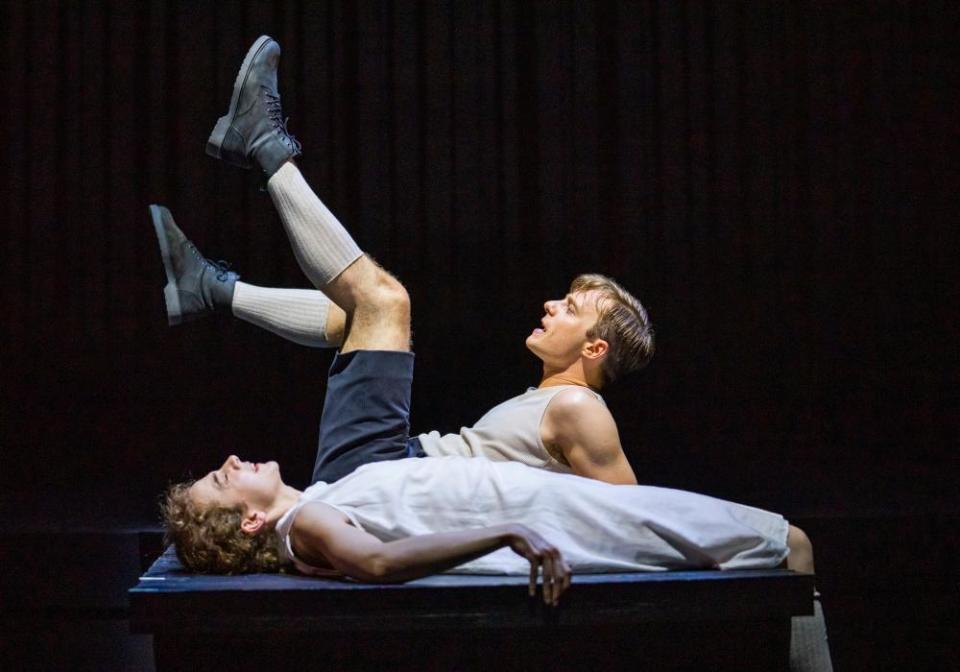Camp Siegfried review – love and terror on Long Island

It is 1938 and two American teenagers are at a themed summer camp on Long Island that is led by Nazi ideology. However much this may feel like a Truman Show-type of alternate reality, Bess Wohl’s two-hander is inspired by the real-life history of the German American Bund, which in the 1930s set up camps across the US in support of the Third Reich.
For these teens at Camp Siegfried, known only as Her (Patsy Ferran) and Him (Luke Thallon), it is as much a summer of love as an indoctrination camp, although the pressure is on to “be social” – which means pairing up and procreating in order to spawn a race of German purebloods.
Teenage passion intersects with dangerous ideology as they meet, chat, fall in love. “Real change requires revolution,” she says, sounding like any other rebellious adolescent. Nerdy and bookish, she wants to be accepted by the world while he wants to be part of something bigger; both these impulses become drivers in their conversion to fascism. Ferran performs her character’s babbling neuroticism impeccably while Thallon is bright-eyed with conviction.

There are some great lines that bring together their awkward flirtation with their sinister backdrop. She is living on Hitler Street and he “on the corner of Hitler and Goebbels”, which must be “fate” in its proximity, he comments, with queasy naivety.
Katy Rudd’s imaginative direction has time and place changes in sudden whooshes. The pair initially stand at opposite ends of the stage but close the gap, gradually, until their sexual passion is choreographed almost as a dance. Rosanna Vize’s almost empty set is exciting for its lack of naturalism as Tal Rosner’s video design shows Nazi rallies on a back-screen.
But the pace feels slow and the stage too big for a story that should have a choking intimacy. The pair’s infatuation does not feel truly charged and while Wohl’s dialogue is good at teen neurosis, it contains an offputtingly self-conscious tone, carefully crafted for cuteness.
Related: Deciphering review – a love letter to learning and a deep dive into wonder
The female character’s conversion to Nazi fanaticism seems to hinge on being chosen to make a speech on “Hitler Day”, and the conversion back again triggered just as suddenly by a chat with her doctor. Still, there is dark power to her speech, when she appears to grow and become monstrous. The double meaning in her words slightly dampens their impact: “I am sure America can be great again,” she says, rehearsing that trite line of Trumpian populism.
The plot flatlines toward the end, but this remains a fascinating and artfully written story with stranger-than-fiction reality at its heart.
At the Old Vic, London, until 30 October.

 Yahoo Finance
Yahoo Finance 